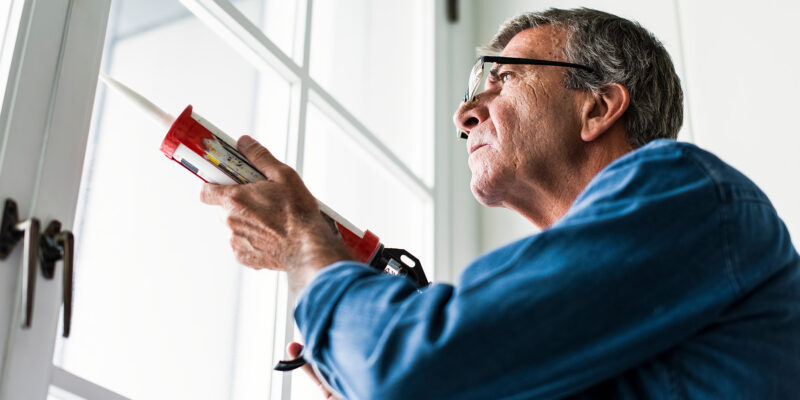Key Points/Overview
Polyurethanes are formed by reacting a polyol (an alcohol with more than two reactive hydroxyl groups per molecule) with a type of chemical called diisocyanates, which are mixed to create different types of polyurethane applications.
Polyurethane foam has a variety of product applications – flexible polyurethane foam is used for cushioning for furniture, shoes, automotive seating and sports equipment. Rigid polyurethane foam is used for insulation in buildings and appliances, as well as some automotive applications.
The most widely used aromatic diisocyanates are toluene diisocyanate (TDI) and methylene diphenyl diisocyanate (MDI). TDI is used to make flexible polyurethane foam for furniture, bedding, carpet underlay and other products. MDI is primarily used to make rigid polyurethane foams used as insulation for homes.
Most polyurethane products are fully reacted before they are sold, and polyurethane is considered not toxic once fully “cured.”
Uses & Benefits
Polyurethanes
Without polyurethane, many products that consumers use every day would be less comfortable, less efficient and not perform as well. Because of its versatility, polyurethane adds value and provides solutions for many products and application types.

Apparel
Polyurethanes are combined with nylon to make garments more lightweight and stretchable. Polyurethane is the primary component of spandex, and is used in faux leathers, sports clothes and other accessories, as well as adhesives in shoes.

Appliances
Polyurethane rigid foams are widely used as insulation in refrigerators and freezers, in both residential and commercial food storage and transportation, where they help these appliances achieve energy savings and performance requirements.

Automotive
Polyurethanes are used extensively in cars to help reduce weight, increase fuel economy while providing comfort and safety, and provide excellent resistance to chemicals and weathering. An average, mid-size vehicle in the United States uses about 60 pounds of polyurethane material. In addition to the foam that makes car seats comfortable, bumpers, interior “headliner” ceiling sections and the car body, spoilers, doors and dashboards all use polyurethanes.

Building and Construction
Today’s buildings demand high-performance materials that are strong, yet lightweight; perform well, yet are easily installed; and are durable, but also versatile. With its excellent strength-to-weight ratio, resistance to heat transfer, durability and versatility, polyurethane makes several types of highly efficient insulation materials, sealants and adhesives for homes and buildings.

Composite Wood
Polyurethane-based binders are used in composite wood products to permanently glue organic materials into oriented strand board, medium-density fiberboard, long-strand lumber, laminated-veneer lumber and even strawboard and particleboard.

Electronics
Polyurethanes are frequently used in the electrical and electronics industries to protect fragile, pressure-sensitive, microelectronic components, underwater cables and printed circuit boards.

Flooring
Whether as a foam carpet underlay, a surface coating, or a flooring adhesive, polyurethanes can make floors more durable, longer lasting, easier to maintain and more aesthetically pleasing. Flexible polyurethane foam as a carpet underlay can significantly increase the lifespan of the carpet, protect its appearance, provide added comfort and support and reduce ambient noise. Polyurethanes are also used as protective coatings on floors, making them easy to clean and maintain.

Furnishings
Polyurethane, mostly in the form of flexible foam, is one of the most popular materials used in furniture, bedding and carpet underlay. As a cushioning material for upholstered furniture, flexible polyurethane foam makes furniture more durable, comfortable and supportive.

Marine
Boaters today can have the comforts of home on the water, thanks in part to flexible polyurethane foam. Polyurethane epoxy resins seal boat hulls from water, weather, corrosion and elements that increase drag, affect hydrodynamics and reduce durability. In addition, rigid polyurethane foam insulates boats from noise and temperature extremes, provides abrasion and tear resistance, and increases load-bearing capacity, all while adding minimal weight. Thermoplastic polyurethane is also great for use in the maritime industry. It is an elastic, durable and easily processed substance, well suited for wire and cable coatings, engine tubing, drive belts, hydraulic hoses and seals and even ship molding.

Packaging
Polyurethane packaging foam can provide more cost-effective, form-fitting cushioning to protect items that need to stay safely in place during transit, such as electronic and medical diagnostic equipment, delicate glassware and large industrial parts. It also can be used as an adhesive in certain flexible packaging applications.
Diisocyanates
Diisocyanates are a family of chemical building blocks used to make a wide range of polyurethane products. The most widely used aromatic diisocyanates are toluene diisocyanate (TDI) and methylene diphenyl diisocyanate (MDI). Less widely used, but still important, are the aliphatic diisocyanates, including hexamethylene diisocyanate (HDI), hydrogenated MDI (H12MDI), and isophorone diisocyanate (IPDI).

TDI
TDI is mainly used to make flexible polyurethane foam that can be found in a wide range of everyday products, including furniture, bedding, carpet underlay and packaging. TDI is also used in the manufacture of some coatings, sealants, adhesives and elastomers. TDI helps produce lighter automobile seating and headliners, saving weight and making vehicles more energy efficient.

MDI
MDI is used primarily to make rigid polyurethane foams such as insulation for your home or refrigerator, and many other uses. Insulation made with MDI can help save heating and cooling costs and conserve energy. Vehicle parts like dashboards, steering wheels and bumpers are also made of MDI.

HDI, H12MDI and IPDI
HDI, H12MDIand IPDI are most often further reacted to form polyisocyanates, or pre-polymers, which act as building blocks to form color-stable polyurethane coatings and elastomers, that can significantly enhance a product’s appearance, lengthen its lifespan and offer high abrasion resistance. Chemical-resistant coatings made with aliphatic diisocyanates help commercial airliners maintain the durability and resistance needed to withstand harsh atmospheric conditions. Coatings prepared with aliphatic diisocyanates can have excellent resistance to abrasion, as well as superior weathering characteristics, including gloss retention and resistance to yellowing and chalking, as well as lengthening the time between painting cycles.

Safety Information
Consumer Safety
Polyurethanes are formed by reacting a polyol (an alcohol with more than two reactive hydroxyl groups per molecule) with a type of chemical called diisocyanates, which are mixed to create different types of polyurethane applications. Most polyurethane products are fully “cured” before they are sold; thus, the chemical reaction that creates the product is complete.
Exposure to uncured diisocyanates may cause certain health effects; however, consumer exposures to uncured isocyanates are expected to be of very low magnitude and frequency. Consumer products containing uncured isocyanates (such as certain adhesives and sealants) are accompanied by product safety information like warning labels that include the characteristics of the chemicals, their approximate cure time and how consumers can properly protect themselves while handling the product.
Manufacturers of products with uncured diisocyanates emphasize that consumers should carefully read the product manufacturer’s Safety Data Sheets and labels for information about potential health effects, chemical properties and how to control exposure.
Fire Safety
Some consumer goods like furniture and bedding may contain flame retardants that allow them to meet fire safety standards and requirements. Likewise, polyurethane insulation, like other building and construction materials, is flame-retarded to meet fire safety standards and building code requirements for flame resistance.


